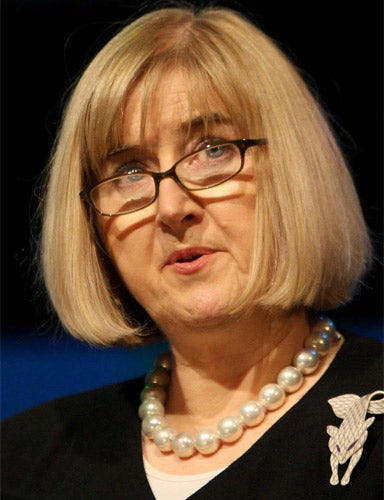Defiant Ofsted rejects mounting criticism of its performance
Children's services watchdog 'needs trust of people it works with'

Your support helps us to tell the story
From reproductive rights to climate change to Big Tech, The Independent is on the ground when the story is developing. Whether it's investigating the financials of Elon Musk's pro-Trump PAC or producing our latest documentary, 'The A Word', which shines a light on the American women fighting for reproductive rights, we know how important it is to parse out the facts from the messaging.
At such a critical moment in US history, we need reporters on the ground. Your donation allows us to keep sending journalists to speak to both sides of the story.
The Independent is trusted by Americans across the entire political spectrum. And unlike many other quality news outlets, we choose not to lock Americans out of our reporting and analysis with paywalls. We believe quality journalism should be available to everyone, paid for by those who can afford it.
Your support makes all the difference.The children's services watchdog Ofsted came out fighting yesterday as it faced growing criticism of its inspection regime by both social services and education executives.
Unveiling the annual Ofsted report yesterday, Christine Gilbert, the Chief Inspector of Education, Children's Services and Skills, said: "There can be no hiding place for poor practice. Weak regulation serves no one's real interest, not even vested interests."
Ms Gilbert's comments came as the barrage of criticism over tougher Ofsted inspections intensified. Shireen Ritchie, of the Local Government Association, said the watchdog had "to have the trust and respect of the people it works with" but instead it was offering "sweeping public judgements with no context".
In her report, Ms Gilbert warned that children were receiving a substandard education in a third of schools because of a "stubborn core" of poor teachers. "Too much teaching is just satisfactory and fails to inspire," the document said.
She also said the Goverment's flagship academies – semi-independent state schools designed to drive up standards in inner cities – were underperforming and there was a "continuing gap" between rich and poor pupils.
Of 30 inspected in the past year, only 17 were considered "good" or "outstanding", eight were "satisfactory" and five were judged "inadequate", compared to just four in 100 traditional schools considered "inadequate" across the country. The report said: "They have been unable to establish a settled ethos and calm behaviour."
Nevertheless, there were encouraging signs, with the percentage of schools judged "inadequate" falling from 8 per cent to 4 per cent since 2006, and the proportion judged "outstanding" rising from 11 per cent to 19 per cent.
Ofsted also reported that an "increased minority" of social services departments were failing to protect their most vulnerable children. In all, 414 reviews of serious cases in which children were badly injured or killed were reported between September 2008 and August. Of 199 cases evaluated, 29 per cent were judged to have been handled inadequately.
"Agencies were found to be particularly poor at addressing the impact of chronic neglect on children and intervening at an early stage to prevent problems from escalating," the report added.
Join our commenting forum
Join thought-provoking conversations, follow other Independent readers and see their replies
Comments